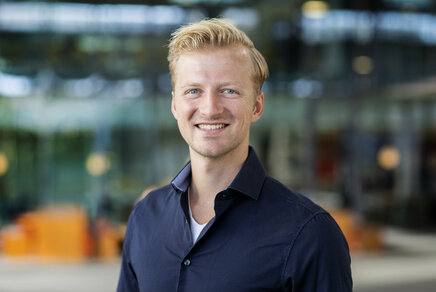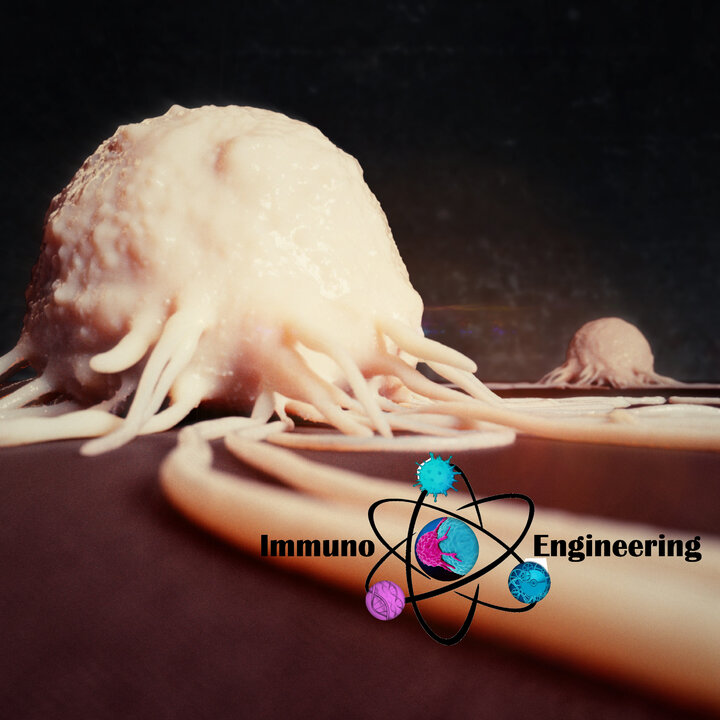Innovative tools to study the immune system
Much of the heterogeneity that we observe is thought to originate or at least be influenced by signals from the microenvironment. Measuring the influence of environmental factors on cellular heterogeneity and investigating regulatory strategies of cell populations, however, is difficult with traditional methods as they do not give much opportunity for the control or design of the microenvironment. We exploit and develop an innovative single cell technology toolbox to fill the technology gap by enabling the compartmentalization of single cells or small groups of cells in chambers or droplets. This allows for the design of minimal environments under the omission of most external factors that could influence cellular behaviour. Similarly, complex artificial microenvironments can be designed and created to assess the behaviour of single cells in response to e.g. soluble messengers or number of potential interaction partners. With this immune circuit engineering approach, we believe that probing cellular heterogeneity and decoding immune cell-cell or cell-pathogen interactions longitudinally and in great detail will revolutionise the fields of immunology and cellular immunotherapy. Studying immune interactions at the level of individual cells is the only way to unambiguously elucidate which cellular properties correlate with distinct functions to enable the development of improved cellular immunotherapeutic strategies to battle diseases.
Read moreResearch Lines
News

![[Translate to English:] [Translate to English:]](https://assets.w3.tue.nl/w/fileadmin/_processed_/b/3/csm_van%20Eyndhoven%20Immune%20cells%20encapsulated%20in%20microfluidic%20droplets_1f7e353643.jpg)
Meet some of our Researchers
Recent Publications
Our most recent peer reviewed publications
-
Daniel J. Taylor,Harry Saxton,Ian Halliday,Tom Newman,Jeroen Feher,Rebecca Gosling,Andrew J. Narracott,Marcel van't Veer,Pim A.L. Tonino,Michel Rochette
Evaluation of models of sequestration flow in coronary arteries - Physiology versus anatomy?
Computers in Biology and Medicine (2024) -
Partho P. Sengupta,Jolanda Kluin,Seung Pyo Lee,Jae K. Oh,Anthal I.P.M. Smits
The future of valvular heart disease assessment and therapy
The Lancet (2024) -
Laura C. Van Eyndhoven,Eleni Chouri,Aridaman Pandit,Timothy R.D.J. Radstake,Jasper C.A. Broen,Abhyudai Singh,Jurjen Tel
Unraveling IFN-I response dynamics and TNF crosstalk in the pathophysiology of systemic lupus erythematosus
Frontiers in Immunology (2024) -
Eva A. van Aalen,Benice van Gerven,Yan Ni,Remco Arts,Maarten Merkx
Turning Antibodies into Ratiometric Bioluminescent Sensors for Competition-Based Homogeneous Immunoassays
ACS Sensors (2024) -
Gerardo Cedillo-Servin,Ouafa Dahri,João Meneses,Joost van Duijn,Harrison Moon,Fanny Sage,Joana Silva,André Pereira,Fernão D. Magalhães,Jos Malda
3D Printed Magneto-Active Microfiber Scaffolds for Remote Stimulation and Guided Organization of 3D In Vitro Skeletal Muscle Models
Small (2024)
Secretary
I Fon Bambang
i.f.bambang@tue.nl
Contact
-
Visiting address
Building 15, Gemini-South (room 3.114)Groene Loper5612 AP EindhovenNetherlands -
Visiting address
Building 15, Gemini-South (room 3.114)Groene Loper5612 AP EindhovenNetherlands -
Secretary
-
Teamlead



